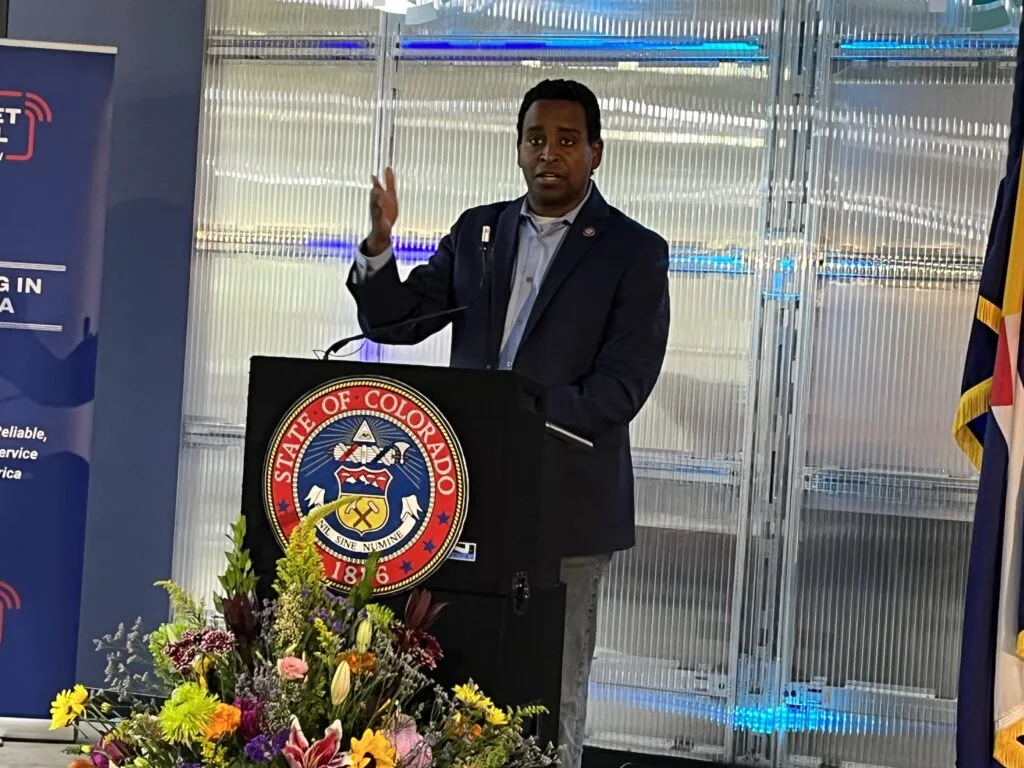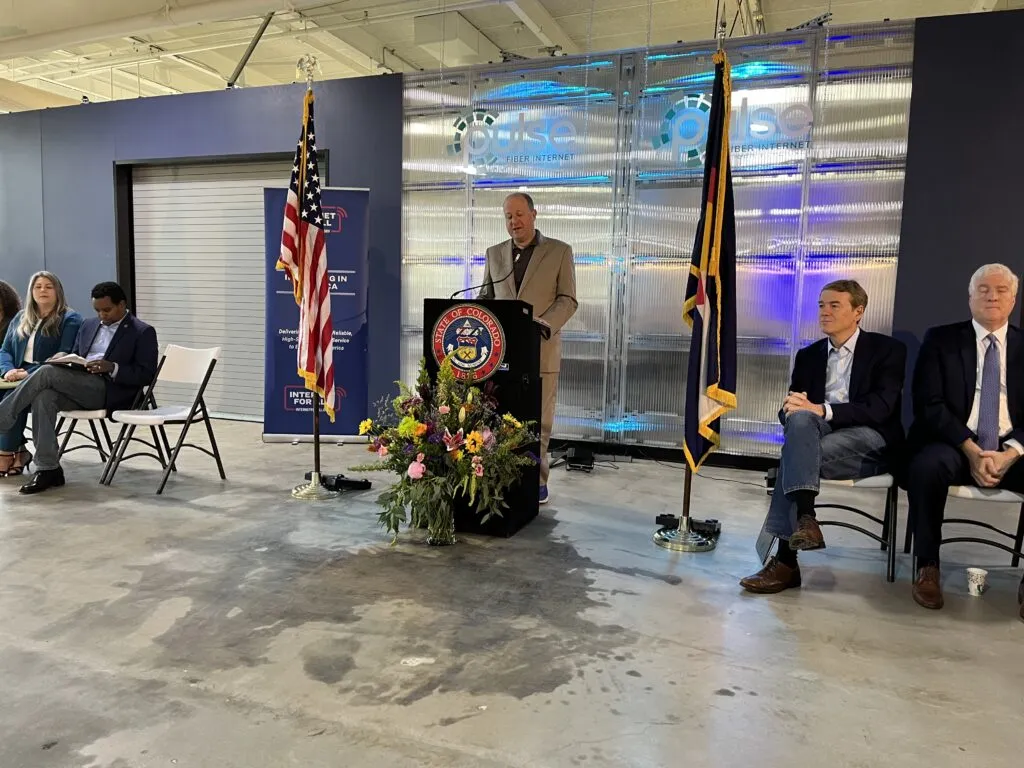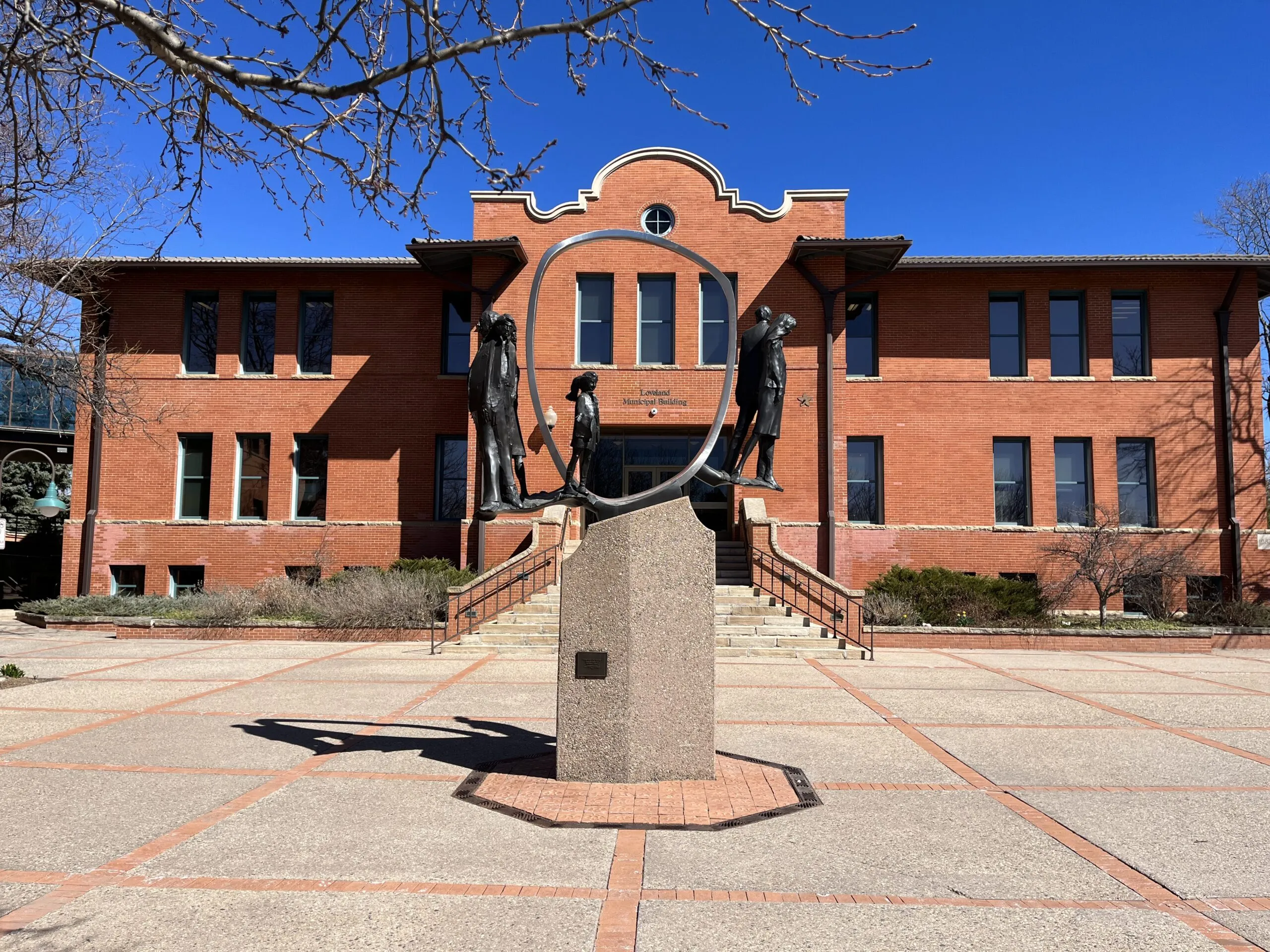Elected reps tout broadband bill that will provide $826M to Colorado

LOVELAND — In what proponents say is as significant as electrification of America or the interstate-highway system, public officials took the stage in Loveland Thursday to celebrate the passage of BEAD, the Broadband Equity, Access and Deployment program.
The program is part of the federal infrastructure law. It commits $42 billion nationwide to a program to extend broadband services to the most-remote areas of the nation. In Colorado, $826 million will be used over the next three years to provide internet access to 99% of the homes in the state. About 190,000 Coloradans have limited access now.
Sen. Michael Bennet, D-Colorado, who wrote the bill, told a gathering at the Warehouse business accelerator in Loveland today that Colorado’s leadership on the issue enabled the passage.
SPONSORED CONTENT
“I can draw a straight line between this bill and my meeting with the Delta-Montrose Electric Association (based in Montrose),” Bennet said. The electric cooperative, which has an internet services division called Elevate Internet, contacted Bennet when the pandemic exposed a flaw in DMEA’s internet rollout plan, namely lack of funding to reach remote areas more quickly when electric cooperative members were cloistered at their homes, teaching their children from home, and attempting to run their businesses.
“We approached Sen. Bennet. A few weeks later, we received a bill draft,” said Kent Blackwell, chief technology officer for Elevate.
Bennet said the bill received bipartisan support because it took a different approach from what the federal government had done in the past.
“We spent $50 billion to extend broadband (before this bill), but in reality we were subsidizing the largest telecommunications companies in the country that did not build out to rural areas … the most expensive areas to build. We’ve stripped it away from the telecommunications companies and given it to the citizens,” he said.
Entities eligible to apply for funding through the program include municipalities, counties, territories, tribal nations and others that will extend fiber internet networks to remote areas under the oversight of states. States will control the effort.
Loveland’s Pulse broadband utility was cited as an example of what a community can do to bypass broadband giants with their own networks. Rep. Joe Neguse, who represented Loveland in the Second Congressional District until redistricting changed the boundaries, said he would point to Loveland’s effort when seeking bipartisan support in the House of Representatives.

Doug Kinkoph, associate administrator of the National Telecommunications and Information Administration’s Office of Internet Connectivity and Growth, said Bennet’s bill set out to give each state a minimum of $100 million to extend internet access, with more possible based upon state needs. In Colorado’s case, $826 million was committed; the state will begin to draw down the funds by the end of the year after it submits its plan.
“It’s not all about infrastructure, but affordability is also essential,” Kinkoph said. In addition to the BEAD funds, a federal Affordable Connectivity Program through the Federal Communications Commission provides assistance to individuals seeking ways to pay for their connections. In Colorado, 200,000 have signed up already, he said.
Gov. Jared Polis, who was among the first of the nation’s governors to support Bennet’s bill, said the state is poised to implement a plan by the end of 2026. He’s confident the funding will be sufficient to reach at least 99% of the households.
“This was a Colorado bill,” Bennet said. “It was written here on the Western Slope and on the Front Range. It puts states in charge for the first time.
“A generation ago, our parents had the foresight to build electrical systems (across the country) and our children will look back on this and see the benefits,” he said. “It all started here in Colorado.”

LOVELAND — In what proponents say is as significant as electrification of America or the interstate-highway system, public officials took the stage in Loveland Thursday to celebrate the passage of BEAD, the Broadband Equity, Access and Deployment program.
The program is part of the federal infrastructure law. It commits $42 billion nationwide to a program to extend broadband services to the most-remote areas of the nation. In Colorado, $826 million will be used over the next three years to provide internet access to 99% of the homes in the state. About 190,000 Coloradans have limited access now.
Sen. Michael Bennet, D-Colorado, who…




